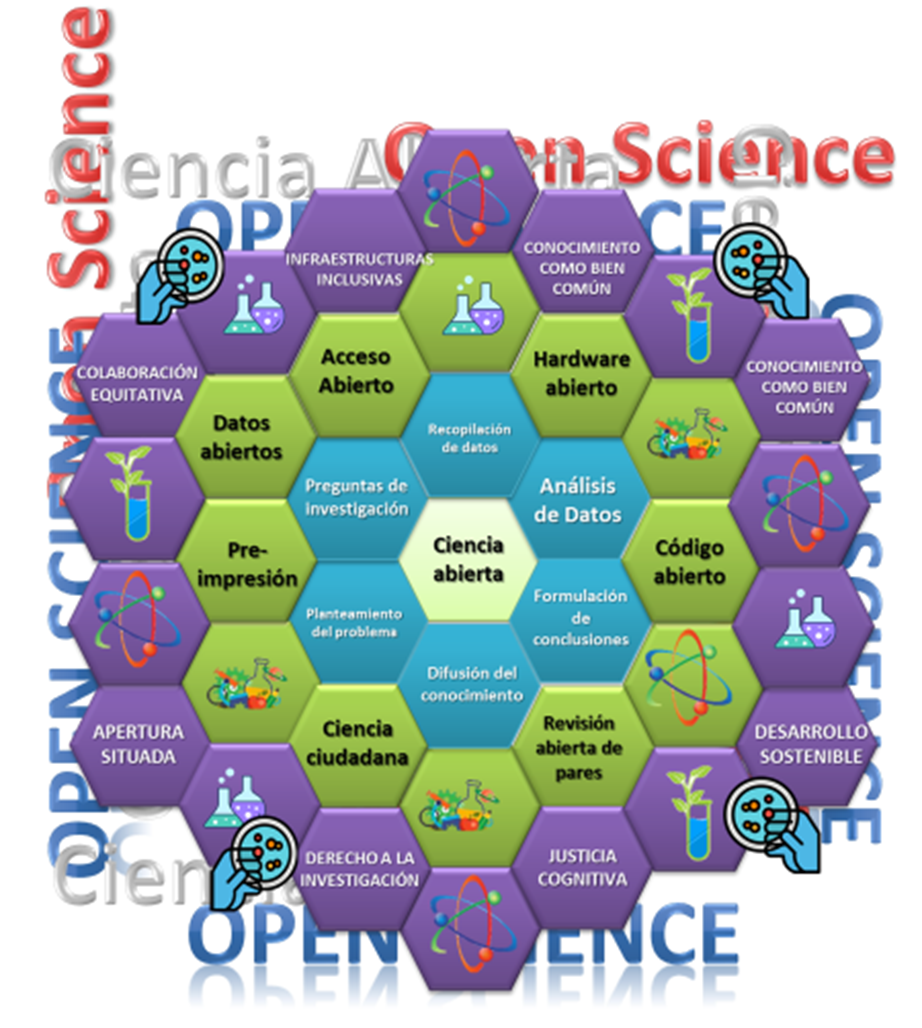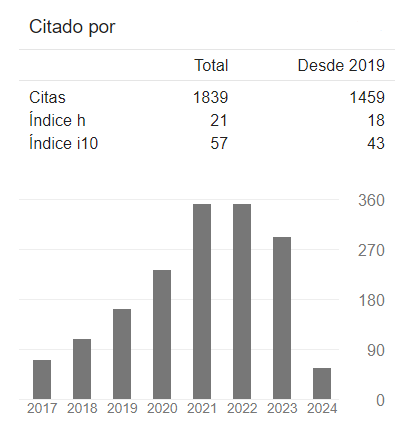Declaration of Open Science

 Open Science Declaration of the Ratio Juris Journal of the Universidad Autónoma Latinoamericana (UNAULA)
Open Science Declaration of the Ratio Juris Journal of the Universidad Autónoma Latinoamericana (UNAULA)
The Ratio Juris Journal of the Universidad Autónoma Latinoamericana (UNAULA) reaffirms its commitment to Open Science, aligning with international standards and recommendations since 2003, including the Colombian Open Science Policy (CONPES 4069) and Resolution 777 of 2022.
Our Commitment to Open Science
-
Adoption of Open Publishing Processes
Ratio Juris implements scientific publication and evaluation processes based on Open Science principles, ensuring transparency, reproducibility, and rigor in all our publications. We adhere to the Berlin Declaration and the open access principles established by UNESCO, promoting free access and use of our scientific and cultural contributions. -
Open Access and Transparent Licenses
We facilitate free access to all our publications, research data, educational resources, and supplementary materials through open digital repositories. We use open licenses that allow for copying, use, distribution, and the creation of derivative works, while always respecting proper attribution. -
Fostering Collaboration and Inclusion
We promote the participation of diverse stakeholders beyond the traditional scientific community, integrating knowledge from indigenous communities, local groups, and other marginalized populations. We encourage interdisciplinary and global collaboration to address significant social issues, respecting cultural diversity and avoiding the commodification of knowledge. -
Sustainability and Governance of Open Infrastructures
We support and contribute to the sustainability of open information infrastructures, actively participating in the creation and governance of academic communities and maintaining financial and operational sustainability practices. We align with the Principles of Open Academic Infrastructure to ensure the long-term continuity and accessibility of our resources. -
Promotion of Equity and Justice
We work to balance opportunities among researchers from different regions and socio-economic contexts, ensuring equitable access to scientific knowledge. We are committed to removing access barriers based on nationality, gender, race, or any other condition, promoting fair and reciprocal knowledge exchange. -
Responsibility and Accountability
We assume responsibility for maintaining high standards of ethical integrity and transparency in our research and publications. We encourage public accountability and oversight of the social and ecological impacts of our activities, ensuring good governance in all our scientific practices. -
Flexibility and Adaptability
We recognize the diversity of contexts and needs in the practice of Open Science, promoting different pathways for transition and modalities of open access. We adapt our policies and practices to respond to technological and social evolutions, always upholding the core values of Open Science.
Vision for the Future
The Ratio Juris Journal aspires to be a benchmark in promoting Open Science in Latin America, contributing to the development of an inclusive, equitable, and sustainable knowledge society. Through international collaboration and respect for cultural diversity, we seek to maximize the benefits of scientific knowledge for all humanity, ensuring its accessibility and reuse for social welfare and environmental care.
Invitation to the Scientific Community
We invite researchers, academic institutions, funding agencies, and all stakeholders involved in the production and dissemination of knowledge to join us in our commitment to Open Science. Together, we can build an accessible, equitable, and sustainable knowledge infrastructure that addresses contemporary challenges and promotes inclusive scientific advancement for the benefit of global society.
References for Open Science
Since the Berlin Declaration, the impact of the Internet on the dissemination of scientific knowledge and cultural heritage has been addressed, recognizing its potential to create a global and interactive representation of that knowledge with universal access. The paradigm of open access has been promoted, ensuring free access and use of scientific and cultural contributions while respecting copyright and proper attribution (Max Planck Society, 2003).
Open access implies that authors and institutions allow free access to their works and ensure their availability in digital repositories, respecting technical standards. Additionally, organizations should encourage researchers and custodians of heritage to support this model and ensure quality through new forms of evaluation. The goal is to maximize the benefits of science for society and foster the development of an open access infrastructure, addressing the legal and financial challenges of the process (Max Planck Society, 2003).
The Concept of Open Science
The concept of open science, according to UNESCO, is identified as the mechanism to democratize scientific knowledge, making it accessible and reusable for all. It is based on principles such as reproducibility, transparency, and collaboration. This practice fosters the participation of diverse actors beyond the traditional scientific community, promoting information exchange and openness in the processes of knowledge creation and evaluation. It encompasses all scientific disciplines and academic practices, contributing to both scientific advancement and societal well-being. It has a comprehensive approach that promotes free and open access to all forms of scientific knowledge, including publications, research data, educational resources, software programs, and equipment, through open licenses or public domain. It facilitates the reuse, adaptation, and distribution of these resources, ensuring their availability for all people without diversity restrictions. Additionally, it incorporates transparent research methodologies and evaluation processes, supported by shared infrastructures and governance principles that ensure reproducibility, interoperability, and multidisciplinary collaboration, benefiting both science and society (UNESCO, 2021).
Values of Open Science
-
Quality and Integrity: Open science must guarantee academic freedom and respect for human rights, promoting high-quality research. This is achieved through the use of multiple knowledge sources and the open dissemination of methods and results, ensuring rigorous control and transparent evaluations (UNESCO, 2021).
-
Collective Benefit: Open science is a global public good that should benefit all humanity. Scientific knowledge must be accessible to everyone, with equitable distribution of its advantages, fostering inclusive, sustainable, and just practices in access and scientific education (UNESCO, 2021).
-
Equity and Justice: Open science seeks to balance opportunities among researchers from developed and developing countries. It promotes a fair exchange of knowledge and results, ensuring equal access to scientific knowledge for all, without discrimination based on nationality, race, gender, or economic situation (UNESCO, 2021).
-
Diversity and Inclusion: Open science must integrate a wide variety of knowledge, languages, and practices. It must respond to the needs of diverse communities, including groups outside of traditional science, such as indigenous peoples and local communities, ensuring a plural and representative approach in scientific research (UNESCO, 2021).
-
Transparency, Control, Critique, and Reproducibility: Open science must promote openness at all stages of research, ensuring robust, reproducible, and peer-reviewed results. This increases the trust and social impact of science, strengthening its evidence-based nature (UNESCO, 2021).
Principles of Open Science
-
Equal Opportunities: All involved in open science should have the same access and contribution opportunities, regardless of their location, race, gender, socio-economic status, or other personal characteristics (UNESCO, 2021).
-
Responsibility, Respect, and Accountability: Open science implies greater responsibility in researchers’ actions, including public accountability, ethical integrity, and consideration of the social and ecological impacts of research (UNESCO, 2021).
-
Collaboration, Participation, and Inclusion: Open science fosters interdisciplinary and global collaboration, integrating social agents and marginalized communities in addressing significant social issues (UNESCO, 2021).
-
Flexibility: Since there is no single approach to open science, respect for different forms and rhythms of transition must be maintained, adapting to diverse contexts and technologies (UNESCO, 2021).
-
Sustainability: Open science must rely on long-term funding models and structures, ensuring equitable participation of researchers from all regions and guaranteeing continuous and unrestricted access (UNESCO, 2021).
This is why entities such as Latindex, Redalyc–AmeliCA, LA Referencia, and CLACSO expressed their recognition to UNESCO for the Open Science Recommendation, adopted in 2021. They emphasized that in Latin America and the Caribbean, knowledge has historically been considered a public good, with a tradition of open access to knowledge. However, globalization and the commercialization of research have imposed uniform criteria that dilute local contributions. The transition to Open Science must respect cultural diversity and avoid the commodification of knowledge. A universal regulatory framework is needed to ensure equity, integrity, and international collaboration in the dissemination of knowledge. Additionally, there is a call to generate appropriate indicators that reflect local scientific production, supporting initiatives such as FOLEC-CLACSO to reform scientific evaluation systems (CLACSO, 2022).
In this same vein, the Barcelona Declaration was made by organizations involved in, funding, and evaluating research, committing to:
- Make openness the norm for research information they use and produce. They will support sustainable infrastructures for open information, contributing equitably to their governance and financial stability, and applying good sustainability practices (Barcelona Declaration on Open Research Information, Kramer, & Waltman, 2024).
- Work with services and systems that facilitate the opening of research information. They will demand that research metadata and results be available in open academic infrastructures, using standard protocols (Barcelona Declaration on Open Research Information, Kramer, & Waltman, 2024).
- Support collective actions to accelerate the transition to openness, promoting collaboration through a coalition for open information and other similar initiatives (Barcelona Declaration on Open Research Information, Kramer, & Waltman, 2024).
CONPES 4069
In the Colombian case, the Ministry of Science, Technology, and Innovation created the Colombian Open Science Policy, which aims to increase the contribution of science, technology, and innovation (CTI) to the social, economic, environmental, and sustainable development of the country, with a territorial and participatory approach. Its specific objectives include:
- Fostering scientific vocations in children and youth, strengthening human capital in CTI, and improving the integration of PhDs into the productive sector (CONPES 4069, 2021).
- Improving knowledge generation and scientific infrastructure to increase its social impact (CONPES 4069, 2021).
- Promoting open access to scientific production and knowledge dissemination to increase scientific and technological capacities and make them available to society (CONPES 4069, 2021).
- Strengthening interactions between academia, the productive sector, and the government, increasing the articulation of these sectors in CTI and enhancing the social appropriation of knowledge (CONPES 4069, 2021).
- Encouraging ethical and responsible research, promoting transparency and integrity, and addressing the use of research in a socially responsible manner (CONPES 4069, 2021).
-
Improve the governance and institutional articulation of the National System of Science, Technology, and Innovation (SNCTI) (CONPES 4069, 2021).
-
Increase funding and monitoring of science, technology, and innovation (CTI) to optimize investments (CONPES 4069, 2021).
An action plan has been established with seven strategic axes and 61 cross-cutting actions involving various government entities to achieve these objectives (CONPES 4069, 2021).
From this, the evolution of open science is observed, transitioning from mere publication to a complex process aimed at creating equity in science itself.
Bibliographic References
Asociación de Universidades Grupo Montevideo (AUGM). (2020, October 9). A look at open science policy in Latin America. https://udelar.edu.uy/portal/2020/10/una-mirada-a-la-politica-de-ciencia-abierta-en-america-latina/
Barcelona Declaration on Open Research Information, Kramer, B., Neylon, C., & Waltman, L. (2024). Barcelona Declaration on Open Research Information (1.0). Zenodo. https://doi.org/10.5281/zenodo.10958522
CLACSO. (n.d.). Declaration on open access to knowledge as a common good. https://www.clacso.org/conocimiento-abierto-como-bien-comun/
CLACSO (2022). Declaration in support of the UNESCO Recommendations on Open Science. CLACSO, La REFERENCIA, REDALYC- AMELICA, LATINDEX. https://www.clacso.org/declaracion-de-apoyo-a-las-recomendaciones-sobre-ciencia-abierta-de-la-unesco/
CONPES, National Council of Economic and Social Policy of the Republic of Colombia, National Planning Department (2021). National Policy on Science, Technology, and Innovation 2022-2031. CONPES 4069. CONPES, National Council of Economic and Social Policy of the Republic of Colombia. https://colaboracion.dnp.gov.co/CDT/Conpes/Econ%C3%B3micos/4069.pdf
Ministry of Science, Technology, and Innovation. (2022). National open science policy Resolution 0777 of 2022. Ministry of Science, Technology, and Innovation. https://minciencias.gov.co/sites/default/files/politica_nacional_de_ciencia_abierta_-2022_-_version_aprobada.pdf
Ministry of Science, Technology, and Innovation. (2021). Public policy for the social appropriation of knowledge. https://minciencias.gov.co/sites/default/files/upload/reglamentacion/resolucion_0643-2021.pdf
UNESCO, United Nations Educational, Scientific and Cultural Organization. (2021). Recommendations on open science. https://unesdoc.unesco.org/ark:/48223/pf0000379949
Unión Europea. (2021). Horizonte Europa 2027: Programa de inversión en investigación e innovación de la UE (2021-2027). https://ec.europa.eu/info/sites/default/files/research_and_innovation/strategy_on_research_and_innovation/presentations/horizon_europe_es_invertir_para_dar_forma_a_nuestro_futuro.pdf
Sociedad Max Planck (2003). Declaración de Berlín sobre Acceso Abierto al Conocimiento en Ciencias y Humanidades. Sociedad Max Planck https://openaccess.mpg.de/Berliner-Erklaerung
Valencia Grajales, J. F., Valencia Grajales, A. M., Marín Galeano, M. S., & Hernández Durango, C. A. (2023). ¿La aplicación de la ciencia de datos versus la ciencia abierta?. UNAULA: Revista De La Universidad Autónoma Latinoamericana, (43), 201–220. https://doi.org/10.24142/unaula.n43a11










































